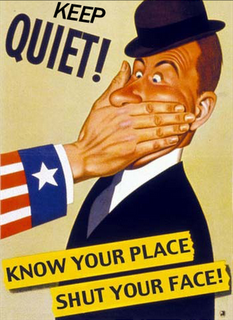
As an English author writing for American publishers, I sometimes feel I spend far too much of my time changing Britishisms to Americanisms. Long are the arguments and explanations I have had with my editors over whether my British character may remove his pants or not (of course he may, but only after he's taken off his trousers, unless he's Superman and wears them the wrong way round); or whether he's gotten mad or got angry; or if he can justifiably be mardy (after he's spent so long on the trousers debate, of course he can).
Lindsey Davis's rant on the subject was recently brought to my attention. She writes:
But the underlying assumption that British books have to be modified for the American market needs to be rethought. It's loathsome. Nobody would ask for this to be done in reverse. Britons accept faucets and such, and tackle US books written in a strong argot because that's an essential part of their flavour. (Come to that, we accept Ian Rankin and Christopher Brookmyre being indelibly Scottish, even impenetrably Scottish...)
She's right, you know. I like reading American books about Americans in America. I like the flavour of speech and the turn of phrase. When I first started on Janet Evanovich's Stephanie Plum series, I hardly understood half the words. Why did she say 'couple days' instead of 'couple of days'? What the hell was a Twinkie? What on earth was Stephanie driving? I had to figure all this out. But I had fun doing it.
Now, I have several American friends, happy to advise me on words they do and don't understand. Yeah, you all know that we call a sidewalk a pavement and an elevator a lift. Just like we know that you put your shopping in the trunk, not the boot, of your car, and wear a vest over your shirt, not under it. So I've learned that the Britishisms I use every day (because I, er, am British) are not completely inpenetrable to American readers. And if they're really words you don't understand, you can jolly well figure them out with those big clever American brains of yours.
A point Lindsey touches upon is that American novels are not altered for the British market. And as I said, I don't think I'd want them to be. However. One place I'd really like to see American publishers make more of an effort is with historicals set in England. Why do Regency characters persist in using the word 'gotten'? It hasn't been commonly used in England since before the days of Chaucer. If your reader is expected to know what a lace fichu is, and what a curricle and a coming-out party is (clue: it's not the kind you'd get in San Francisco), then they can damn well work out what Autumn is. Fall is what happens to a title in the bestseller lists when readers get cheesed off with inaccuracies.
Lindsey's rant, and those of several other British authors I know writing for the American market, has led me to wonder if we're not trying too hard to make things understandable. 'Dumbing down' is a phrase used a lot these days, and I think it applies here. I think it's being rather condescending to assume the average American reader can't understand a handful of Britishisms. Romance readers, as we know, are not stupid. Romantic novels aren't, either. So why this dumbing down?
Readers, tell me what you think. Do American-written, English-set books give you a headache? Do English-written books with American characters and settings make you cry? Do you have any idea what it means to be brassed off?
Except that only a handful of people in the UK speak the King's (Queen's) English any more. :)
ReplyDeleteMy personal view falls somewhere in the middle. I quite like the concept of a kind of International Standard English - makes things easier for everyone. But I think fiction should reflect place and time and be in part a decision of the writer. But you do have to think of your readers.
I agree with Emma. I think it depends on where the book is set. If it's set in the UK, then by all means stay true to your style. If it's written in America, then study the regions and see what "expressions" are used per region.
ReplyDeleteTo me, it's no different than me trying to write for a Scottish audience and having no clue the expressions and what type cars they drive.
Cater to your audience and be true to your characters and you'll be fine :)
I enjoy reading books set in different countries and learning about various cultures :)